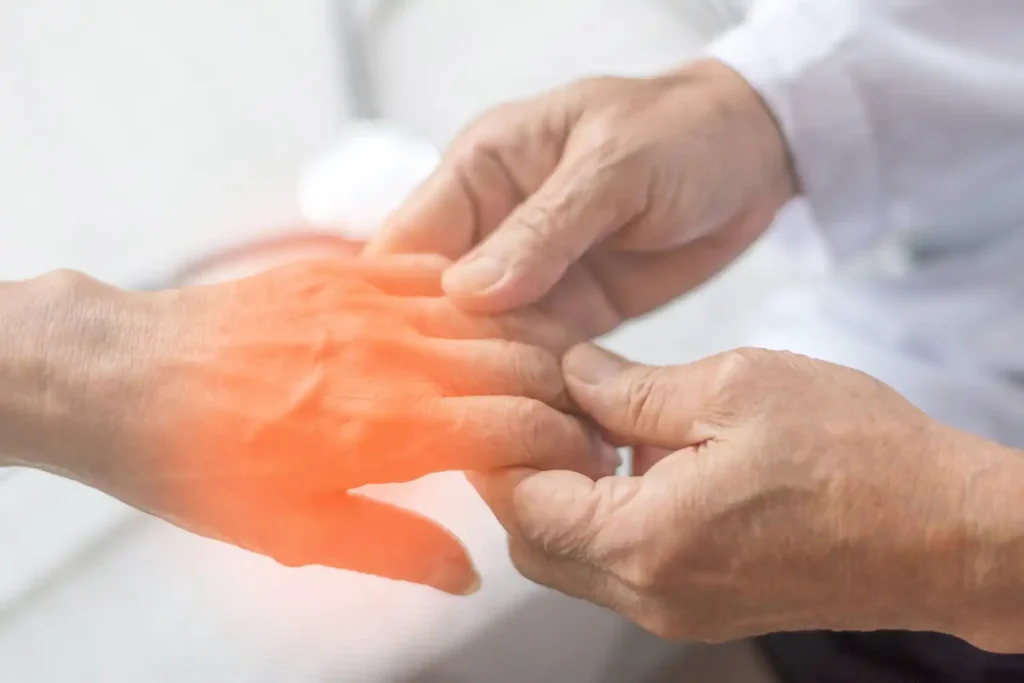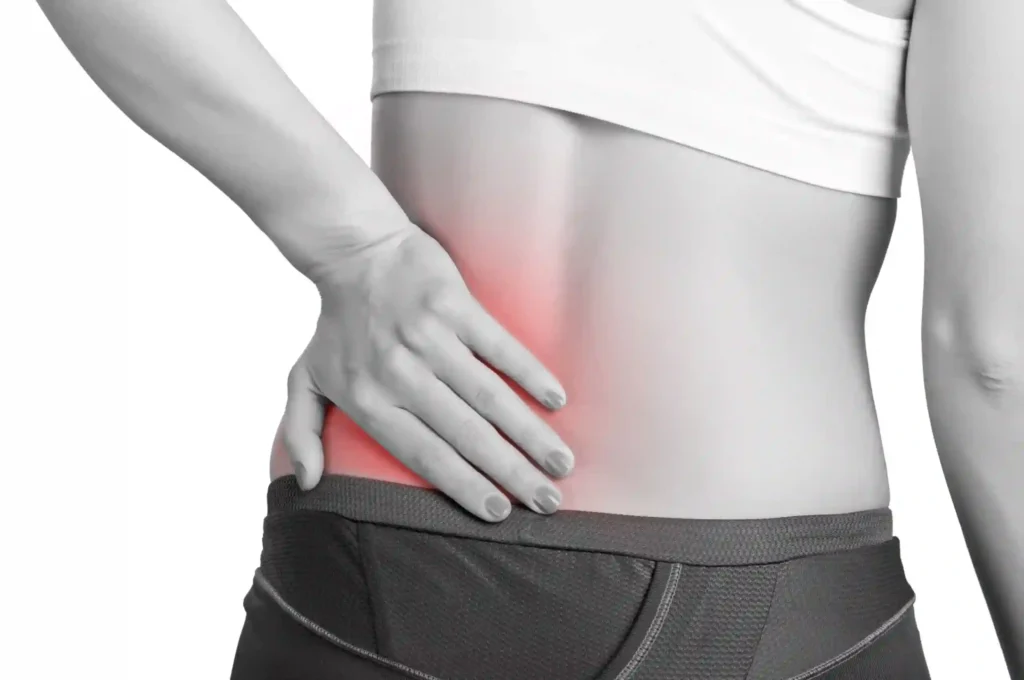When most people think of chiropractic care, they picture adjustments, posture tips, or exercise plans. These are important for health, but chiropractors notice more in their daily practice. We see how nutrition shapes the strength and flexibility of the spine day
Food isn’t just fuel. It helps your body recover, repair, and respond to chiropractic care.
What We See in Clinic
Many patients walk into the clinic with recurring back tension, stiff necks, or disc-related issues. Adjustments bring relief and restore movement but without the right building blocks, healing can be slower.
Chiropractors often notice:
Bone density concerns:
In patients with low calcium or vitamin D.
Sluggish recovery:
In those with poor protein intake.
Inflammatory diets:
(too much processed food, sugar, or refined oils) leading to more stiffness.
Dehydration signs:
Found especially in people with disc-related discomfort.
People see this frequently in practice. That’s why many chiropractors talk not only about adjustments but also about diet. Nutrition and spinal care go hand in hand.
Why Nutrition Matters for Your Spine
Your spine is made up of vertebrae, discs, ligaments, and supporting muscles. These structures don’t exist in isolation. They rely on constant supply of nutrients to stay healthy.
- Bones need calcium, vitamin D, and magnesium for density and strength.
- Discs need hydration and collagen support from vitamin C and protein.
- Muscles require protein and magnesium to recover and stabilise the spine.
- Nerves depend on B vitamins and healthy fats to function properly.
When chiropractors assess patients, they often connect the dots between nutrition and symptoms. A stiff spine may not just be about posture, it may also reflect what’s missing from the diet.
Chiropractor-Recommended Nutrients for Spinal Health
Here are the nutrients chiropractors frequently highlight during consultations:
1. Calcium and Vitamin D – bone density support
Vertebrae are the foundation of your spine. Without enough calcium, bones weaken over time. Vitamin D ensures calcium is absorbed effectively.
Many chiropractors see patients with low vitamin D especially during winter months. They often recommend safe sun exposure, oily fish, and fortified foods.
2. Magnesium – for relaxation and recovery
Magnesium helps muscles release tension. Chiropractors see that patients with tightness or cramps often feel better by eating more magnesium. Good sources include nuts, seeds, and green vegetables.
3. Protein – the repair tool
Every adjustment works better when muscles and connective tissues can repair themselves. Protein is crucial here. Chiropractors regularly advise patients—especially older adults—to check they’re getting enough lean protein, beans, or legumes.
4. Omega-3 fatty acids – natural anti-stiffness support
Many patients ask why they feel “inflamed” or stiff. Chiropractors often point to diet. Omega-3s from salmon, flaxseeds, or walnuts support joint mobility and reduce the impact of highly processed foods.
5. Vitamin C – collagen support for discs and ligaments
Chiropractors know discs rely on hydration and collagen. Vitamin C helps maintain both. Patients are often encouraged to eat citrus fruits, peppers, or berries to support this process.

Hydration and Disc Health – A Chiropractor’s View
One of the most common things chiropractors see is dehydration affecting spinal discs. Discs are shock absorbers, mostly made of water. When hydration is low, discs compress more easily, leading to discomfort and stiffness.
That’s why many chiropractors encourage consistent hydration, not just during workouts but all day long. Even a small change like replacing fizzy drinks with water or herbal tea can make a noticeable difference.
The Link Between Diet, Posture, and Energy
Chiropractors also see how nutrition affects posture. Patients who skip meals or rely on sugar often slump more, tire quickly, and struggle to hold adjustments. On the other hand, those who fuel with balanced meals like protein, vegetables, whole grains often maintain better posture and recover faster.
Nutrition isn’t just fuelling the spine, it’s fuelling the nervous system that controls posture itself.
Chiropractic Care + Nutrition = Stronger Results
Chiropractic adjustments restore movement and reduce strain. But nutrition is what allows those adjustments to “stick.”
Many patients notice that when they improve their diet alongside chiropractic care, they experience:
- Longer-lasting adjustments
- Reduced stiffness between visits
- Better energy and posture at work
- Faster recovery from strain or injury
Chiropractors see this pattern frequently. This is why nutrition advice is often part of the conversation. as it not just a diet plan. Instead, it offers practical guidance to support spinal health.
Practical Tips Chiropractors Share with Patients
Here are some of the spine-friendly habits often recommended in clinic: Replace one processed snack a day with nuts, seeds, or fruit. Add leafy greens or broccoli to dinner for extra calcium and magnesium. Choose oily fish once or twice a week for omega-3 support.
Keep a reusable water bottle nearby. Sip steadily, don’t just gulp at once.
Start the day with protein. Eggs, yoghurt, or a smoothie with protein powder.
A Day of Spine-Friendly Eating
Chiropractors often share practical examples to make nutrition less abstract. Here’s a sample day that supports spinal health:
- Breakfast: Scrambled eggs with spinach and wholegrain toast.
- Mid-morning: A handful of almonds and a banana.
- Lunch: Grilled salmon with quinoa and roasted vegetables.
- Snack: Greek yoghurt with blueberries and chia seeds.
- Dinner: Lentil stew with kale and carrots, served with brown rice.
- Hydration: Water throughout the day, herbal tea in the evening.
Balanced. Simple. Chiropractor-approved.

The Takeaway
Nutrition is the hidden partner in spinal health. Chiropractors see every day how diet choices affect recovery, posture, and long-term results. Adjustments align the spine. Nutrition builds the foundation that keeps it strong.
The good news? You don’t need dramatic changes. Start small. Swap one snack. Drink more water. Add one portion of oily fish. Your spine will thank you.
Ready to Support Your Spine Inside and Out?
At Goddard Chiropractic, we offer hands-on chiropractic care. We also provide practical advice on lifestyle and nutrition. This helps support your spine in the best way possible.
Your next step is simple: book your visit. Together, we’ll create a plan that helps your spine stay strong, flexible, and well-nourished—for today and for the years ahead.
To book your appointment click here.






